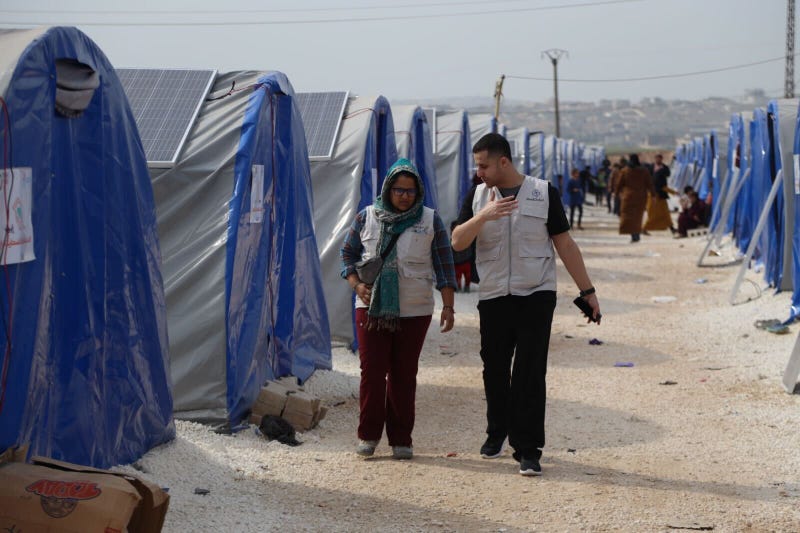
PHILADELPHIA (KYW Newsradio) — A Philadelphia-area doctor returned home this weekend after a humanitarian trip to the earthquake-stricken regions of Turkey and Syria.
Dr. Nareen Ahmed, a University of Pennsylvania doctor, recently traveled to the region with international nonprofit MedGlobal. Weeks after the 7.8-magnitude earthquake flattened portions of Turkey and Syria, both countries are still in chaos, with at least 50,000 people confirmed dead.
“What we were seeing was that many people were brought to different hospitals not knowing if their families were alive, and only just finding each other, you know, weeks after the earthquake,” she said.
In many cases, Ahmed says doctors helping from abroad aren’t permitted to perform surgical procedures, so they help retrain local doctors to take on new responsibilities. “You have surgeons that are maybe, you know, ear, nose and throat surgeons,” she said, “and now they're having to do trauma surgery.”
Even now, she says Turkey is still experiencing aftershocks. “I felt this rumble in the room and I felt the television shake on the wall. That was the first experience,” Ahmed recalled.
“It was 1/1000 of the rumbling that people felt when the actual earthquake hit the epicenter. But my first experience in Turkey was seeing the trauma on the faces of people who live there.”
While help and humanitarian aid are needed in both countries, Ahmed says she found it more difficult to help in Syria, where the World Bank has estimated the cost of damages at $5.1 billion.
“Turkey is getting a lot of help,” she said, “and it's really hard to get supplies and things over to Syria and the people there are saying, ‘The world forgot about us.’ That's what I took away from this.”
Once on the ground, Ahmed admits, she didn't realize how challenging it would be to get humanitarian aid across the border from Turkey to Syria.
“The Assad regime essentially is part of the reason why there's sort of a blockade of entering with humanitarian aid,” she said, explaining it would normally be even more challenging to cross the border with medical supplies. However, the Syrian government agreed to loosen restrictions at the border for three months after the disaster.
“We're all kind of saying, ‘Okay, this is our opportunity to get as much in as possible because the cross border relations is really, is really strained.’”


